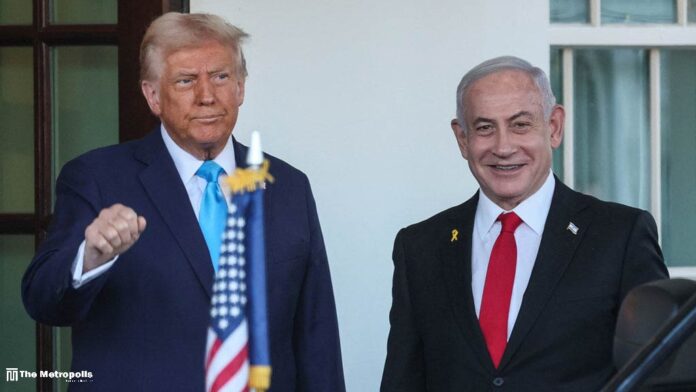US President Donald Trump stated on Thursday that Israel would hand over control of Gaza to the United States after the conflict ends, with Gaza’s population resettled elsewhere, eliminating the need for US troops in the region.
This clarification came a day after global backlash over his proposal to transform Gaza into the “Riviera of the Middle East.” In response, Israel instructed its military to prepare for a “voluntary departure” of Palestinians from Gaza.
Trump, who had previously not ruled out sending US troops, elaborated on his idea in comments on his Truth Social platform. He suggested that, after the fighting concludes, Israel would turn Gaza over to the United States, with Palestinians resettled in safer communities elsewhere. He emphasized that no US soldiers would be required on the ground.
Prime Minister Benjamin Netanyahu and Defense Minister Israel Katz voiced support for Trump’s proposal. Katz revealed plans for Gaza residents who wish to leave the enclave to have exit options via land, sea, and air.
Trump’s unexpected announcement ignited widespread criticism across the Middle East, particularly from regional powers like Saudi Arabia and Egypt, which rejected the notion of displacing Palestinians from Gaza. Palestinians living in Gaza also expressed fury, viewing the plan as an affront to their right to remain on their land.
It remains unclear if Trump’s proposal will proceed or if it is merely a negotiation tactic. However, his first term’s history of bold statements, many of which were not realized, adds to the uncertainty. The fate of the ongoing ceasefire talks also hangs in the balance, with only a small portion of hostages released so far under the current ceasefire agreement.
The issue of Palestinian displacement is a sensitive one, and any forced relocation would constitute a violation of international law, according to the Geneva Conventions. Though some Israeli officials support the notion of voluntary relocation, the broader implications of such a plan remain highly contentious.



